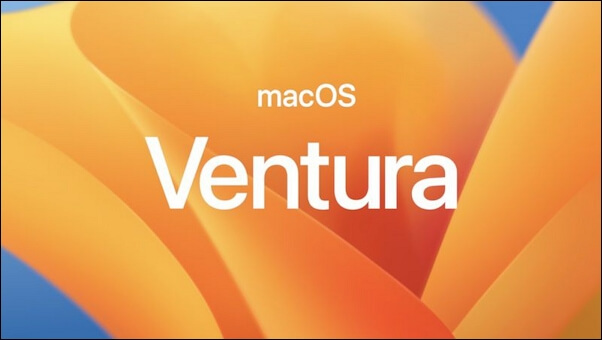macOS: a Brief Definition
macOS is a Unix operating system developed and marketed by Apple Inc. since 2001. It is the primary operating system for Apple's Mac computers. (From Wikipedia)
Mac operating system, now known as macOS, which first started with the name "Mac OS", was introduced in 1984 to run Macintosh personal computers (PCs). It has gone through almost 40 years, with the latest version of Ventura announced in the year 2022.
Mac operating system is famous for its GUI (Graphical User Interface); it even inspired Microsoft to use GUIs for Windows OSes instead of its user input method. macOS is designed specifically for the hardware it runs on and comes with an entire suite of beautifully designed apps to make things easier, and that's why you can't do it with other computers.
macOS vs. Mac OS X
Mac OS X was launched on March 24, 2001. "X" stands for the Roman numeral, and it is stated that the correct pronunciation should be ten instead of the letter "X". All the Mac OS versions were named after great cats such as Cheetah, Puma, Tiger, and so on. Still, internally Apple used wines as the codename of each version.
In 2012, after the Mountain Lion was released, the name of the operating system was shortened to OS X instead of the original Mac OS X. Since 2013, the name has been converted from cats to places in California, and another feature witnessed is the change from the title "OS X" to title "macOS".
Over two decades, many good and bad changes have occurred. From the first edition, which had a problem with slow speed and didn't run important apps like Microsoft Word, Mac OS X has evolved to what we know today as macOS through various iterations and designs.
macOS Release Versions (Including Mac OS X and macOS)
Apple approximately releases a new version of macOS every year. The table below shows you the release versions of macOS; also, you can find the development process through it.
The first chart lists the versions of Mac OS X and OS X:
| Version and Name | Release Date | Supported Devices |
| Mac OS X 10.0 Cheetah | 2001/3/24 | G3, G4, and G5 iBook and PowerBook, Power Mac, and iMac |
| Mac OS X 10.1 Puma | 2001/9/25 | |
| Mac OS X 10.2 Jaguar | 2002/8/24 | |
| Mac OS X 10.3 Panther | 2003/10/24 | Macs with a New World ROM |
| Mac OS X 10.4 Tiger | 2005/3/29 | Macs with built-in FireWire and either a New World ROM or Intel processor |
| Mac OS X 10.5 Leopard | 2007/10/26 | G4, G5, and Intel Macs (32-bit or 64-bit) at 867 MHz or faster Classic support dropped from 10.5 and later. |
| Mac OS X 10.6 Snow Leopard | 2009/8/28 | Intel Macs (32-bit or 64-bit) |
| Mac OS X 10.7 Lion | 2011/7/25 | Intel Macs (64-bit) |
| OS X 10.8 Mountain Lion | 2012/7/25 |
MacBook (Aluminum, Late 2008 or later) MacBook Pro (Mid 2007 or later) MacBook Air (Late 2008 or later) Mac Mini (Early 2009 or later) iMac (Mid 2007 or later) Mac Pro (Early 2008 or later) Xserve (Early 2009) |
| OS X 10.9 Mavericks | 2013/10/22 | |
| OS X 10.10 Yosemite | 2014/10/16 | |
| OS X 10.11 El Capitan | 2015/9/30 |
The second table shows the macOS versions:
| Version and Name | Release Date | Supported Devices |
|
macOS 10.12 Sierra |
2016/9/20 | MacBook Air (Late 2010 or later) Mac Mini (Mid 2010 or later) iMac (Late 2009 or later) iMac Pro (2017) (macOS 10.13) Mac Pro (Mid 2010 or later) |
| macOS 10.13 High Sierra | 2017/9/25 | |
| macOS 10.14 Mojave | 2018/9/24 | MacBook Pro (Mid 2012 or later) Mac Mini (Late 2012 or later) iMac (Late 2012 or later) iMac Pro (2017) Mac Pro (Mid 2010 or later) |
| macOS 10.15 Catalina | 2019/10/7 | MacBook Pro (Mid 2012 or later) Mac Mini (Late 2012 or later) iMac (Late 2012 or later) iMac Pro (2017) Mac Pro (Late 2013 or later) |
| macOS 11 Big Sur | 2020/11/12 | MacBook Pro (Late 2013 or later) Mac Mini (Late 2014 or later) iMac (Mid 2014 or later) iMac Pro (2017) Mac Pro (Late 2013 or later) |
| macOS 12 Monterey | 2021/10/25 | Mac Mini (Late 2014 or later) iMac (Late 2015 or later) iMac Pro (2017) Mac Pro (Late 2013 or later) Mac Studio (2022) |
| macOS 13 Ventura | 2022/10/24 | Mac Mini (2018 or later) iMac (2017 or later) iMac Pro (2017) Mac Pro (2019) Mac Studio (2022) |
macOS: What Is the Latest Version
The latest version is macOS 13 Ventura, which is coming out on October 24, 2022.

It is the 19th major release of the Mac operating system, named after a California city well-known for its beaches, surfers, and windsurfers. The operating system adds a new Stage Manager windowing system and changes System Preferences to System Settings.
Stage Manager is a main feature that helps to automatically organize open files and applications by putting the main window the user is working on in the center of the screen and on the left side showing small icons for other open files and apps. Want to try out the new features? You can download macOS Ventura. But before you decide to upgrade your Mac computer, use Time Machine Backup to back up all your precious data in case you lose them.
Additional new features include:
- Edit or delete messages sent via iMessage
- Shared tab groups
- Passkeys that replace passwords in Safari
- iCloud shared photo library
- New Clock and Weather apps
- Enhanced smart folders in Notes
- Spotlight improvements
- Improved gaming experience
- Live text for videos
- Calming background sounds
Besides the latest version, the following three are the most frequently used and of massive support.
macOS 12 Monterey

macOS Monterey was announced during the 2021 Worldwide Developers Conference, with its features focusing on social communication and privacy. One is SharePlay working with FaceTime to enable up to 32 people to watch the same media simultaneously. Everyone on the call that uses apps utilizing this feature can receive time synchronization information and have playback controls.
Universal Control was another feature with a relatively short demo during the WWDC keynote. A user could connect multiple Macs and iPads, and one mouse and keyboard could travel wirelessly between these devices, making multiple computers running their operating system mesh into one. Additional new features include:
- Digital Legacy to pass down data to trusted friends or family members after you are gone
- "Erase all content and settings" for the Mac like the one on the iPhone
- Addition of microphone and camera indicators
- New iCloud Shared folder in the Finder
- Low Power Mode for Bluetooth devices
- A dedicated password manager in System Preferences
- Shortcuts app added to the Mac
macOS 11 Big Sur

macOS 11 Big Sur, named for the mountainous region in central California, is the 17th major release of the Mac operating system.
Big Sur represented the milestone of the macOS 11, whose most significant change in macOS Big Sur was that it used Apple Silicon as its processor instead of Intel.
New features include:
- Safari: 50 percent faster than Chrome
- The Control Center
- Customizable widgets in the notifications menu
- Supports iOS apps on Apple M-1 chip Macs
- Spatial audio support for AirPods Pro
- Maps app: Look Around capability
- Improved group messaging in Messages
macOS 10.15 Catalina

macOS 10.15 Catalina, named after the island of California, represents the 16th major release of the Mac operating system announced in June 2019.
Catalina removed the widget app Dashboard but added some new features. Sidecar enables to use of iPad as a second screen through AirDisplay or AirParrot; splits iTunes into three: Music, Podcasts, and Apple TV; the Finder manages iOS devices connected to Mac; Find My combines Find My Mac and Find My Friends; Reminders handle attachments; and Siri becomes more intelligent when notifying you.
A quick review of the key new features:
- 64-bit applications only
- Catalyst apps
- Sidecar iPad second screen
- iTunes breakup
- Find My app
Conclusions
macOS, the operating system developed by Apple, going through iterations and innovations repeatedly, witnessing the name change from Mac OS X to macOS, has been updated to the latest version, Ventura, arriving last year. From Cheetah to Ventura, each version released so far comes with new functions or features. Therefore, you may completely understand what macOS is from the above four parts.
Was This Page Helpful?
Jaden is one of the editors of EaseUS, who focuses on topics concerning PCs and Mac data recovery. Jaden is committed to enhancing professional IT knowledge and writing abilities. She is always keen on new and intelligent products.
Daisy is the Senior editor of the writing team for EaseUS. She has been working at EaseUS for over ten years, starting as a technical writer and moving on to being a team leader of the content group. As a professional author for over ten years, she writes a lot to help people overcome their tech troubles.
Related Articles
-
What Is A DLL File and Where Are DLL Files Located in Windows 10
 Daisy/2024-01-16
Daisy/2024-01-16 -
macOS Sonoma vs. Ventura: Should You Upgrade macOS 14 [2024 Updated]
 Brithny/2024-07-01
Brithny/2024-07-01 -
What Is the Mac Terminal? Introduction to the Command Line Interface on macOS
 Daisy/2024-06-27
Daisy/2024-06-27 -
What Is Rufus? Your Best Answers in 2024
 Cici/2024-01-11
Cici/2024-01-11
